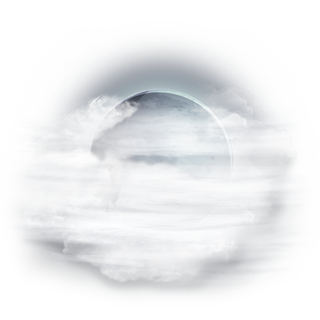What is the purpose of faith? What are we supposed to receive from our dedication to a higher power? Are we supposed to receive anything at all or is that a selfish minimization of the point of belief? The societal role of religion, the lofty virtues and corrosive tendencies of fervent faith, has always been a favorite forte of genre fiction, specifically horror. Humanity’s relationship with the extraordinary unknown is part and parcel of supernatural horror and the stresses such narratives impose on their casts of characters often illuminate underlying social truths about religion. Protagonists rediscovering their faith after undergoing a long trial of terrors is a worn out cliché by this point, as is the old chestnut of a faction uniting under a charismatic religious leader during a time of crisis, their obsession and desperation turning them into the real monsters. However, for a horror story to probe the purpose and perils of religion directly is stickier territory. No matter what questions the author asks or answers they find, somebody will be insulted. As such, religion is more often the backdrop or accessory to the horror rather than the central topic of discussion, never allowing the writer to stretch and explore the subject in all its ramifications and extremes. Often it is just that “oh, demons exist,” or “welp, hell is a place,” and no further examination is presented. But when a writer decides to jump on that bull of a subject, hold it tight and ride that beast, it is a marvelous and unique spectacle. That’s what director Mike Flannigan created in his miniseries “Midnight Mass”—a marvelous and unique spectacle of religious horror.
It’s no secret that Mike Flannigan occupies the upper echelon of modern horror filmmakers. From his bone-chilling mainstream debut with 2013’s “Oculus” to “Ouija: Origin of Evil,” which miraculously salvaged the joke premise of the movie’s failing franchise, to his underrated exercises in adapting Stephen King’s work in “Gerald’s Game” and “Doctor Sleep,” Flannigan hollowed out a comfortable little niche for himself in the horror genre. Most will recognize his trademark dusky color grading and meticulously-set shots from his work for Netflix, though, for whom he spearheaded the popular “The Haunting of Hill House” and “The Haunting of Bly Manor.” “Midnight Mass” is his third Netflix horror series, the only one not based on a pre-existing work and undoubtedly the best of the bunch. The show chronicles the arrival of the mysterious priest, Father Paul Hill (Hamish Linklater) to the isolated close-knit Christain community of Crockett Island. While Father Hill’s charisma and religious zeal energize the desperate townsfolk, after the priest performs a series of inexplicable and unnerving miracles, interest turns to obsession, and the island transforms into a divided cultish hellscape. The series is an enrapturing descent into perdition, rife with body horror, fantastic mystery, tragic death and a novel twist on a classic monster. It is, however, a slow burn, the evil at the heart of the tale only glimpsed in passing for the first half of the show, a precarious sense of dread sustained throughout. The audience is held over by the ensemble cast of characters, all lovingly detailed and brought to life by career-defining performances. Of most note are Samantha Sloyan’s Bev Keane, an overbearing religious harpy whose smile drips with self-righteous hate, and Rahul Kohli’s Muslim Sherrif Hassan, who, despite the English actor’s inability to nail an American accent, is still played with an endearing everyman frustration. Linklater’s stint as Father Paul Hill deserves special commendation as he plays the priest with both endearing empathy and enigmatic deceitfulness, forcing the audience to like and half-trust him throughout the whole show, even after bathtubs of blood are spilled on his behalf.
Under all the murder, madness, gore and fire that make up “Midnight Mass’s” perpetually shocking horror, Flannigan remains focused on his thesis, using the deadly supernatural chaos to lay it out for the audience. To spoil as little about the twists and turns of “Midnight Mass” as possible, almost every character seeks to use Father Hill and his miracles to get something out of their faith in God, whether it be forgiveness, stability, health, wealth or eternal life. For many, religion is something selfish and transactional, a free ticket to superiority and paradise that can be lorded over others, a virtue prized and forced upon others to justify itself like a disease. This consumptive, greedy, holier-than-thou obsession is what tears apart Crockett Island and its denizens. The beliefs that ultimately save or at least salvage some of the characters are ones of simple comfort and unity. To Flannigan, religion is meant to guide and console, to teach people how to be good to themselves and others rather than instantly making one good by the repetition of specific rituals or prayers. In the end, religious belief in pursuit of reward or returns is self destructive to the believer. It’s a simple message, but a priceless and personal one, especially in a modern America where the tendency for religion to be used as a free pass for violent hate and reactionary retrograde policy is becoming more pronounced than ever before.


